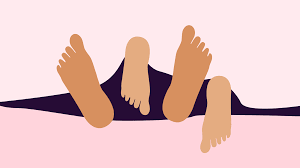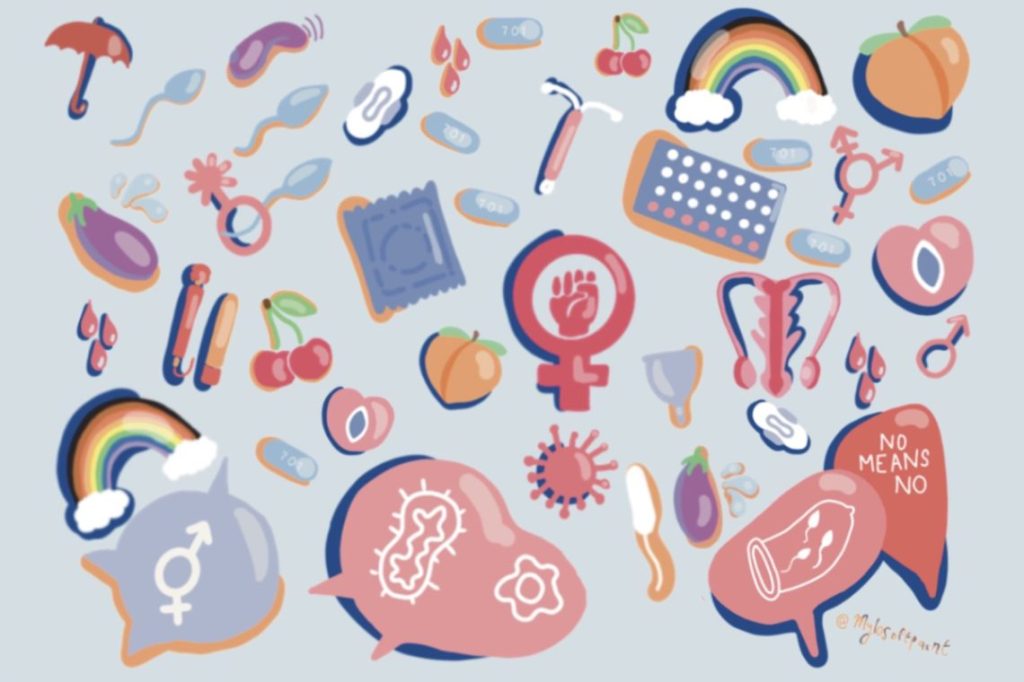Sexual desire is a natural and vital aspect of human sexuality, contributing to our overall well-being and satisfaction in intimate relationships. However, individuals may experience fluctuations or a decline in sexual desire at various points in their lives. Understanding the factors that influence sexual desire and exploring strategies to enhance it can lead to a more fulfilling and enjoyable sexual experience. In this Post, we will delve into the reasons behind How to Increase Sexual Desire and provide practical strategies to increase it.
Defining Sexual Desire:
Sexual desire, often referred to as libido, can be defined as a person’s natural inclination or interest in engaging in sexual activities. It is the internal motivation that drives individuals to seek sexual pleasure and intimacy. Desire is a multifaceted experience that involves physical, emotional, and psychological aspects. It can vary in intensity and frequency, differing from person to person and throughout different stages of life.

Factors Influencing Sexual Desire:
Hormonal Influences:
Hormones, such as testosterone and estrogen, play a vital role in regulating sexologist in Delhi. Testosterone, predominantly found in higher levels in males, is associated with increased sexual motivation. Estrogen, found in higher levels in females, also contributes to sexual desire and receptivity. Fluctuations in hormone levels due to factors like age, medication, or health conditions can impact sexual desire.
Psychological and Emotional Factors:
Psychological and emotional well-being greatly influences sexual desire. Factors like stress, anxiety, depression, body image issues, self-esteem, and relationship dynamics can either enhance or dampen one’s desire for sexual intimacy. Emotional connection, trust, and communication with a partner play a significant role in fostering desire.
Relationship Factors:
The quality and dynamics of a relationship can significantly impact sexual desire. Open and honest communication, emotional intimacy, novelty, and a sense of security can contribute to a heightened desire for sexual engagement. Relationship conflicts, lack of emotional connection, or unresolved issues may result in decreased desire.
Cultural and Societal Influences:
Cultural and societal norms, beliefs, and attitudes towards sex and desire can shape an individual’s perception and expression of sexual desire. Societal messages, taboos, and expectations around sexuality may impact how individuals embrace and express their desires.
Physical Health and Well-being:
Physical health and overall well-being play a crucial role in sexual desire. Factors such as chronic illness, medications, fatigue, pain, or hormonal imbalances can affect desire levels. Engaging in regular exercise, maintaining a balanced diet, and managing stress can positively influence sexual desire.

Strategies to Increase Sexual Desire:
Open Communication:
Engaging in open and honest communication with your partner about sexual desires, fantasies, and needs is crucial. Expressing your desires and listening to your partner’s desires can create a deeper sense of intimacy and increase sexual desire.
Prioritize Intimacy:
Carving out dedicated time for intimacy is essential. Prioritize intimate moments with your partner, free from distractions and external pressures. Engage in activities that foster emotional connection, such as cuddling, kissing, or simply spending quality time together.
Experimentation and Novelty:
Introducing novelty and variety into your sexual routine can reignite desire. Explore new sexual experiences, fantasies, or try different positions or locations. Engaging in shared activities that promote adventure and excitement can also enhance sexual desire.
Self-Care and Stress Management:
Taking care of your overall well-being is crucial for boosting sexual desire. Engage in stress-management techniques, such as exercise, meditation, or mindfulness practices. Prioritize self-care activities that promote relaxation, rejuvenation, and self-compassion.
Addressing Underlying Issues:
If psychological or emotional factors are impacting sexual desire, consider seeking professional help. Therapy or counseling can be beneficial in addressing underlying concerns, such as relationship difficulties, body image issues, or past traumas that may be affecting sexual desire.
Physical Connection and Touch:
Engaging in non-sexual physical affection, such as hugging, cuddling, or holding hands, can help foster a sense of closeness and increase sexual desire. Physical touch releases oxytocin, a hormone associated with bonding and pleasure.
Exploring Sensuality:
Embrace sensuality by focusing on pleasure and sensations rather than solely on achieving orgasm. Engage in activities that promote relaxation and sensuality, such as sensual massages or taking a bath together.

Understanding Variations in Sexual Desire:
It’s important to recognize that sexual desire can vary greatly among individuals. Some individuals may have a high level of desire and experience frequent arousal, while others may have a lower or more fluctuating level of desire. These variations are normal and can be influenced by biological, psychological, and social factors. It’s essential to embrace and respect these differences within ourselves and our partners.
Cultivating and Nurturing Sexual Desire:
Self-Exploration:
Understanding and exploring one’s own desires is a crucial step towards cultivating sexual desire. This can involve self-reflection, acknowledging personal preferences, and embracing one’s unique sexual identity. Engaging in self-pleasure, fantasy, or erotic exploration can also help nurture desire.
Communication:
Open and honest communication with your partner is vital for nurturing sexual desire. Expressing your desires, fantasies, and boundaries can foster intimacy and create a safe space for exploring shared desires. Regularly discussing your sexual needs and desires can strengthen the connection and enhance desire within the relationship.
Prioritizing Intimacy:
Creating time and space for intimacy in your relationship is essential for maintaining and nurturing sexual desire. This can include setting aside dedicated time for sexual activities, engaging in sensual experiences, or exploring new ways to connect intimately.
Managing Stress:
Stress can significantly impact sexual desire. Engaging in stress-management techniques such as exercise, mindfulness, and relaxation can help reduce stress levels and enhance desire. Prioritizing self-care and creating a balanced lifestyle can contribute to overall well-being and sexual desire.
Conclusion
Sexual desire is a complex and individual experience, influenced by various factors. Understanding and embracing our desires, as well as creating a supportive and communicative environment within relationships, are essential for fostering healthy sexual desire. By recognizing the intricacies of desire and nurturing our own needs, we can cultivate a fulfilling and satisfying sexual life. Remember, sexual desire is unique to each individual, and embracing and respecting these differences is key to experiencing pleasure and intimacy to the fullest.
